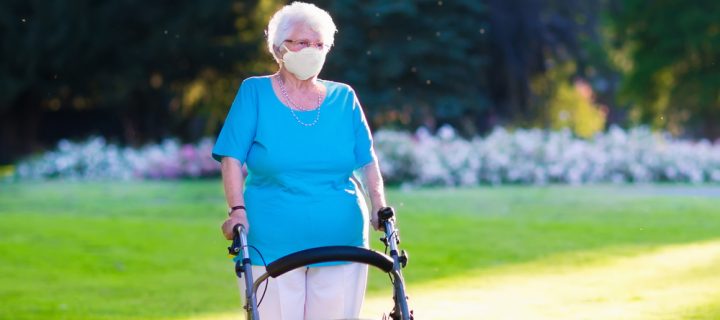Whether you want it to or not, your immune system grows weaker with time.
Growing older comes with many challenges. Your eyesight might not be what it once was, getting around can generally be more difficult, and small things can become big things. Deciding what activities now interest you and whether or not you really want that entire large burger for lunch can present bigger decisions than may seem necessary. The landscape changes.
How these changes arise can vary greatly from person to person. Some things are unavoidable, however.
Related: Should I Take My Infant to the Pediatrician?
One of these is the fact that your immune system really does become less powerful as you age.
According to Dr. Jessica Lancaster, an immunologist speaking to writers at the Mayo Clinic’s Research Magazine, scientists are not entirely sure why this happens. They do know what happens however. Interested in learning more? Follow along as we shed some light on this complicated topic by comparing Dr. Lancaster’s description of a young immune system versus an older one.
Organized Compartments vs Messy Ones
Let’s start with the basics. Your lymph nodes are small compartments found in your immune system. These nodes help your body mount a defence against something like a virus. They do this by attacking and annihilating germs as they pass through your lymph fluid.
And there’s more. Your T cells are also something you need to mount an immune response against a foreign invader. T cells are something that enter your lymph nodes and interact with other cells within them. They do this by receiving signals from something called dendritic cells. This interaction and movement, along with other events in your body, allows your cells to figure out how to best arm you against foreign invaders.
Related: Aspirin is Saving the Lives of Severe Coronavirus Patients
In younger people, Dr. Lancaster explains, the spaces within a person’s lymph nodes are well organized. They are “correctly compartmentalized”. This means it is relatively easy for T cells to navigate around inside these young lymph nodes. In older people, however, the lymph nodes become disorganized. Entering old lymph nodes is kind of like walking into an elderly person’s apartment where plants, cats, and newspapers are taking over and it is now hard to find the couch in the corner.
Consequently, when T cells enter older lymph nodes they can find it more difficult to get around. Because of this, it can be more difficult for them to interact with the other cells they need to. The T cells cannot access the correct cues in older people. This stalls the body’s overall immune response. And when things take too long, as they can with COVID-19 in older patients, death can come too soon.
COVID-19 Risk
This all sounds rather dire because, well, it is. What kind of increased risk do older people face when fighting COVID-19? According to the Centers for Disease Control and Prevention (CDC), if you are between the ages of 50 and 64 you are 30 times more likely to die of COVID-19 compared with those who are 18 to 29 years old. People who are 75 to 84 years old are 220 times more likely, should they catch it.
Of course, no one can hide under a rock until a COVID-19 vaccine appears on the scene. Even then, it is questionable how effective a vaccine will be in helping older populations survive the virus, (although it is predicted that a vaccine will at least do some good for seniors).
Related: COVID-19 Outbreaks and Your Processed Food
In light of this, we should all take the best precautions possible to protect the more vulnerable in society by wearing a mask, washing our hands, and practicing social distancing.
Make wise daily decisions. Are coronavirus infection rates high in your community? Are you older? Consider sending a younger family member to the store for groceries if you can. Protect yourself in ways that make sense. In this instance, unfortunately nature doesn’t have your back. But a friendly face can.
photo credits: FamVeld/Shutterstock.com












